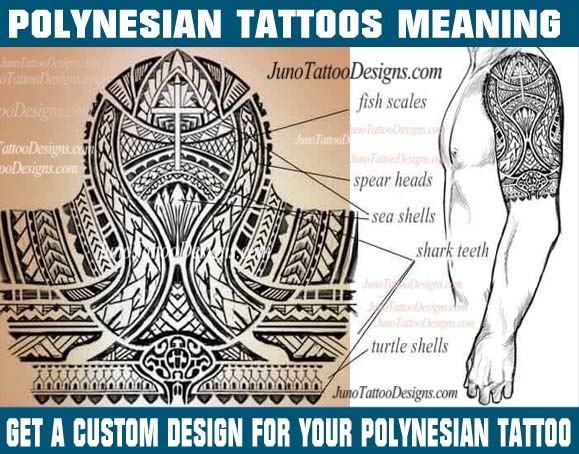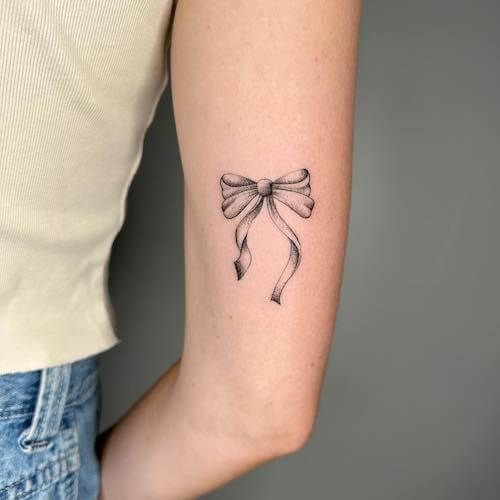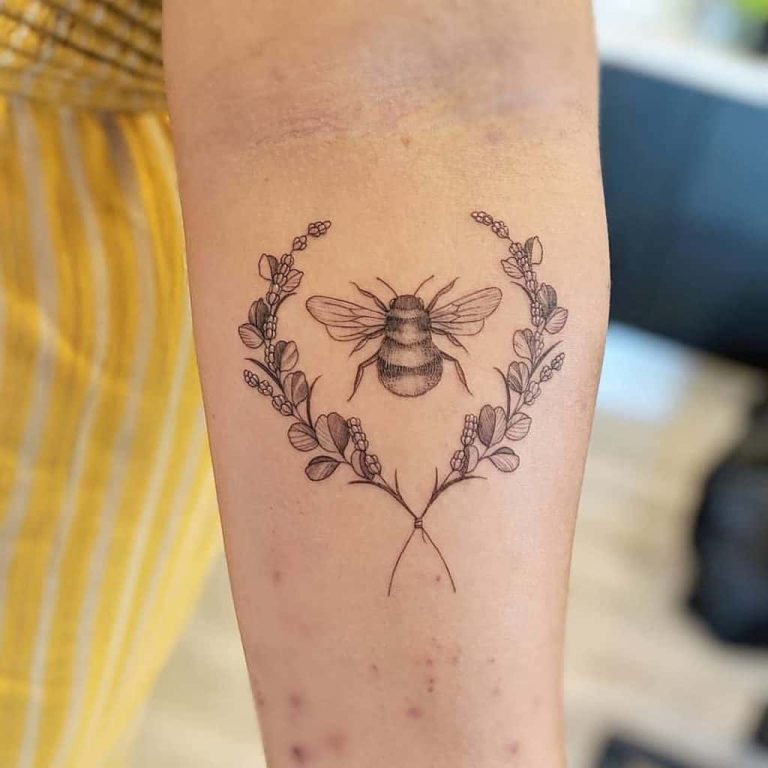Polynesian tattoos are more than just body art. They tell a story, a deep cultural tale.
Polynesian tattoos, also known as “tatau,” are rich in history and meaning. These tattoos are not just designs; they are symbolic expressions of identity, heritage, and social status. Each pattern and symbol holds a specific significance, often representing protection, strength, and connection to nature.
The intricate designs are a visual language that communicates the wearer’s ancestry, achievements, and beliefs. Understanding the meanings behind these tattoos offers a glimpse into the rich Polynesian culture and its traditions. Dive into the fascinating world of Polynesian tattoos and uncover the stories they tell through their unique and beautiful designs.

Credit: www.polynesiantattoosymbols.com
Read More: Sparrow Bird Tattoo Meaning: Symbolism and Inspirations
Introduction To Polynesian Tattoos
Polynesian tattoos are more than just body art. They are a window into a rich cultural history. Each tattoo tells a story, expresses identity, and holds deep meanings.
Historical Context
The tradition of Polynesian tattoos dates back thousands of years. Early explorers documented the intricate designs on the bodies of Polynesian warriors. These tattoos were not just for decoration. They served as symbols of social status, bravery, and family lineage.
In ancient times, the tattooing process was a sacred ritual. Tattooists used tools made from bones and tusks. The ink was derived from natural sources, like soot and plant-based dyes. The process was painful, but this pain was part of the journey. It was a testament to one’s strength and endurance.
Cultural Significance
Polynesian tattoos carry significant cultural weight. Each design element holds specific meanings. For instance, the tiki symbolizes protection and fertility. The shark teeth represent adaptability and courage. Each tattoo is a unique blend of symbols, tailored to the individual’s life and experiences.
These tattoos also serve as a form of communication. They convey personal and communal stories without words. They connect the individual to their ancestors and the greater Polynesian community.
Polynesian tattoos are more than body art. They are a living tradition, a form of storytelling, and a mark of identity. They honor the past and connect to the future, celebrating the rich heritage of Polynesia.

Credit: www.pinterest.com
Common Symbols And Their Meanings
Polynesian tattoos are rich in history and symbolism. Each design holds a unique meaning and tells a story. Understanding the common symbols can help in appreciating the depth and significance of these tattoos. Below, we explore some of the most popular symbols and their meanings.
Tiki Figures
Tiki figures represent ancestors and deities in Polynesian culture. These symbols are often depicted with human-like features. Tiki figures symbolize protection, power, and guidance. They are believed to ward off evil spirits and bring good fortune. Tiki tattoos often have distinct facial expressions, each conveying different emotions and meanings.
Ocean Waves
Ocean waves are a common element in Polynesian tattoos. They symbolize life, change, and continuity. Waves represent the rhythm and flow of life, as well as the connection to the sea. The ocean is a vital part of Polynesian culture, making this symbol particularly significant. Ocean waves in tattoos can also signify the journey and adventures of the wearer.
Tattoo Placement And Symbolism
Polynesian tattoos carry deep meanings and are rich in symbolism. The placement of these tattoos on the body is not random. Each location holds specific significance and adds to the tattoo’s overall meaning. Understanding these placements and their symbolism can provide a deeper appreciation of Polynesian tattoo art.
Body Placement
The location of a Polynesian tattoo on the body often reflects the wearer’s identity and beliefs. For example, tattoos on the head represent spirituality and wisdom. Tattoos on the arms and shoulders symbolize strength and bravery. The chest and back tattoos are linked to protection and honor. Leg and thigh tattoos often signify growth and transformation.
Each body part holds unique meanings. The placement choice is a personal and cultural decision. It reflects the individual’s journey and status within the community.
Gender Differences
Men and women in Polynesian culture have different tattoo traditions. Men’s tattoos often cover larger areas of the body. These tattoos symbolize strength, courage, and status. Common placements include the face, arms, and legs.
Women’s tattoos are usually smaller and more delicate. These tattoos often appear on the hands, wrists, and thighs. They represent beauty, fertility, and social status. The differences in tattoo placement highlight the distinct roles and qualities valued in men and women.
Despite these differences, both genders see tattoos as a way to connect with their heritage and express their identity.

Credit: www.pinterest.com
Read More: Serpent Tattoo Meaning: Unveiling Ancient Symbolism and Power
Modern Interpretations
Polynesian tattoos have a rich history. They are deeply rooted in tradition and culture. Today, these tattoos have evolved. They blend ancient meanings with modern styles. This section explores the modern interpretations of Polynesian tattoos. We will look into contemporary designs and cultural preservation.
Contemporary Designs
In the modern world, Polynesian tattoos have taken on new forms. Artists mix traditional elements with modern aesthetics. This creates unique and personalized designs.
- Geometric Patterns: These are popular in contemporary Polynesian tattoos. They symbolize balance and harmony.
- Animal Symbols: Modern designs often feature animals. Each animal has a specific meaning. Sharks, for instance, symbolize protection.
- Minimalist Styles: Some people prefer simpler designs. These tattoos use fewer lines and details but still hold deep meanings.
Cultural Preservation
Despite modern influences, the core of Polynesian tattoos remains. They preserve the culture and traditions of Polynesian people. This is crucial for maintaining their heritage.
Many tattoo artists respect these traditions. They study ancient symbols and meanings. This ensures that each tattoo remains true to its roots.
| Traditional Symbol | Modern Interpretation |
|---|---|
| Enata | Represents human figures. In modern tattoos, it symbolizes life and experiences. |
| Ocean Waves | Symbolizes change and continuity. Modern designs use it to represent life’s journey. |
| Spearheads | Means courage and strength. Contemporary tattoos use it to show personal growth. |
Many people choose Polynesian tattoos to honor their heritage. They want to keep their culture alive. This is a powerful way to connect with their ancestors.
Modern Polynesian tattoos are more than art. They are a bridge between the past and present.
Read More: Sacred Heart Tattoo Meaning: Deep Symbolism and Spiritual Significance
Frequently Asked Questions
What Do Polynesian Tattoos Symbolize?
Polynesian tattoos symbolize strength, protection, and identity. They often represent family, heritage, and social status.
Are Polynesian Tattoos Religious?
Yes, Polynesian tattoos often have spiritual meanings. They can symbolize gods, ancestors, and nature.
How Are Polynesian Tattoo Designs Chosen?
Designs are chosen based on personal stories. They reflect one’s life, achievements, and beliefs.
Do Polynesian Tattoos Hurt?
Yes, they can be painful. The process involves deep, intricate patterns which can cause discomfort.
Can Anyone Get A Polynesian Tattoo?
Anyone can get one, but it’s respectful to understand the culture and meaning behind the designs.
Conclusion
Polynesian tattoos hold deep meanings and rich cultural history. Each symbol tells a story. These designs represent strength, protection, and identity. Choosing a Polynesian tattoo connects you with ancient traditions. The art form continues to inspire and fascinate people worldwide.
Understanding the meanings behind these tattoos helps appreciate their beauty. If you decide to get one, respect the culture. Embrace the symbolism and wear it with pride. Polynesian tattoos are more than just body art. They are a tribute to heritage and personal expression.




